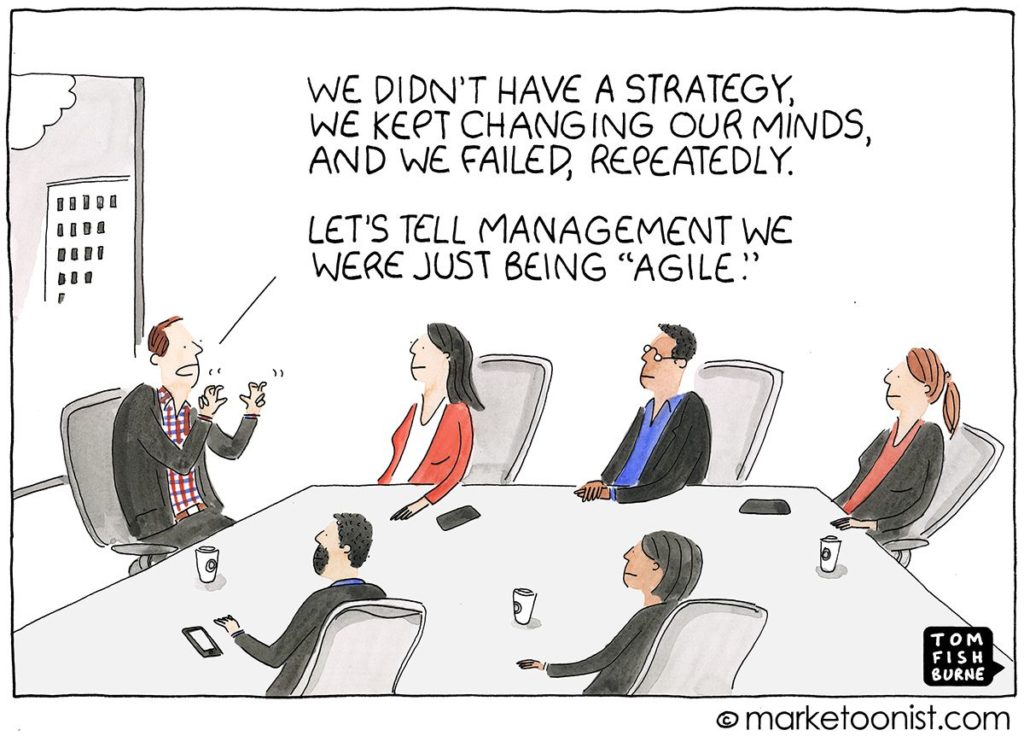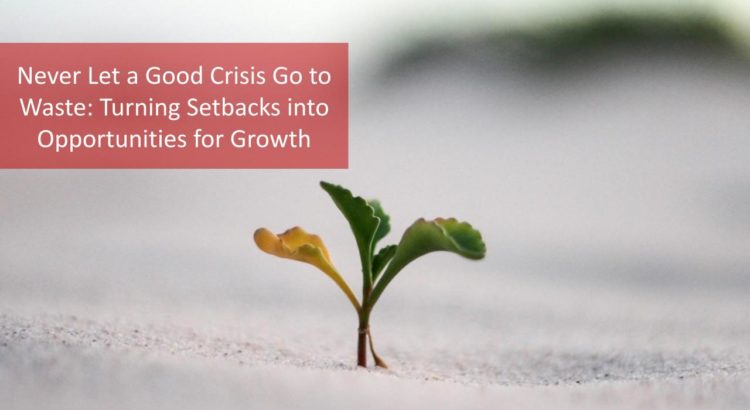Ever notice how the toughest challenges in project management often turn out to be the most valuable? They’re not just inevitable—they’re catalysts that push us beyond our comfort zones. These hurdles test our resilience, adaptability, and ingenuity. The phrase “Never let a good crisis go to waste” perfectly captures this idea, urging professionals to view obstacles not as dead-ends but as springboards for innovation and growth. Embracing this mindset is crucial for project managers navigating the turbulent waters of today’s business landscape.
Fail Fast, Fail Forward: How Amazon’s Culture Fuels Project Management Success?
Embracing the Nature of Crises
A crisis, by definition, is a time of intense difficulty or danger. It disrupts the status quo, forcing individuals and organizations to adapt swiftly. While the immediate reaction might be panic or resistance, it’s important to recognize that crises often pave the way for significant breakthroughs.
Consider the global shift to remote work triggered by the COVID-19 pandemic. Companies that swiftly adapted not only maintained continuity but also discovered new efficiencies and opportunities for global collaboration. This challenging period became a launching pad for redefining workplace dynamics and leveraging technology in unprecedented ways.
How Leading Projects with Contrarian Thinking Can Boost Project Success Rates?
Historical Examples of Thriving Amidst Crises
Winston Churchill During World War II
Winston Churchill, Britain’s steadfast Prime Minister during World War II, exemplified leadership in the face of adversity. Confronted with the daunting threat of Nazi invasion, Churchill rallied the nation with his indomitable spirit and stirring speeches. His ability to inspire resilience turned a period of national crisis into a unifying force, ultimately contributing to the Allies’ victory.
Mastering Multi-Project Management: Lessons from Multi-Front Warfare
Netflix and the 2008 Financial Crisis
In 2008, as the financial crisis wreaked havoc on economies worldwide, Netflix saw an opportunity. With consumers tightening their budgets, demand for affordable home entertainment surged. Netflix capitalized on this by expanding its streaming services, investing in content, and refining its recommendation algorithms. This strategic pivot not only sustained the company during the economic downturn but positioned it as a dominant player in the entertainment industry.
Personal Development Through Adversity
Crises aren’t confined to global events; they often strike on a personal level. Job losses, health issues, or failed projects can feel devastating. Yet, these moments can also be transformative.
Take the example of a project manager who, after a significant project failure, decides to pursue further certification. This additional training not only enhances their skill set but also restores confidence. Earning an Agile PMP Certification equips them with cutting-edge methodologies to manage projects more effectively in uncertain environments. The setback becomes a stepping stone, leading to new opportunities and a revitalized career trajectory.
How Project Managers Can Leverage Six Sigma Strategies to Supercharge Agile Project Management?
Another instance is professionals who, during economic downturns, choose to upskill or reskill. By embracing lifelong learning and obtaining certifications like the Agile PMP Certification, they increase their marketability and adaptability, ensuring they remain valuable assets in any economic climate.
Practical Strategies for Project Managers
As project managers, the way we handle crises can significantly impact project outcomes and team morale. Here are practical steps to turn setbacks into opportunities:
- Stay Composed and Assess the Situation
Panic impedes clear thinking. Take a moment to breathe and evaluate the crisis objectively. What are the immediate impacts? What resources are available? A calm assessment lays the groundwork for effective action. - Engage Your Team
Collaboration is key. Involve your team in brainstorming solutions. Diverse perspectives can lead to innovative approaches that might not surface in isolation. - Communicate Transparently
Keep stakeholders informed about challenges and proposed solutions. Transparency builds trust and can garner additional support when needed. - Focus on Solutions, Not Problems
Shift the narrative from what’s gone wrong to how it can be fixed. A solution-oriented mindset empowers you and your team to take proactive steps. - Invest in Professional Development
Use the crisis as an opportunity to enhance your skills. Pursuing an Agile PMP Certification can provide you with advanced strategies to navigate complex project challenges. This not only benefits your current situation but also prepares you for future obstacles. Check out our Agile PMP courses. - Learn and Document
After navigating the crisis, conduct a thorough review. What worked? What didn’t? Document these lessons to enhance future crisis management strategies.

Turning Setbacks into Innovation
Crises often highlight inefficiencies or outdated practices. Use them as a springboard to innovate. For instance, if a project delay exposes flaws in your workflow, consider implementing agile methodologies to increase flexibility and responsiveness. Obtaining an Agile PMP Certification can provide the necessary knowledge to effectively integrate these methodologies into your projects.
Similarly, technological disruptions can be an impetus to adopt new tools that enhance productivity. Embracing digital transformation during a crisis can lead to long-term benefits and a competitive edge.
Cultivating a Resilient Mindset
Building resilience is about more than just surviving crises; it’s about thriving because of them. Cultivate a mindset that views challenges as opportunities to:
- Grow Professionally: Each obstacle presents a chance to develop new skills and competencies. Certifications like the Agile PMP can be instrumental in this growth. Join our exclusive Sandbox membership and gain access to a wealth of resources designed to improve your professional growth.
- Strengthen Relationships: Working collaboratively through tough times can strengthen team cohesion and stakeholder relationships.
- Drive Change: Crises can provide the necessary push to implement changes that might have been met with resistance under normal circumstances.
Conclusion
“Never let a good crisis go to waste” is more than a catchy phrase; it’s a powerful reminder that within every challenge lies an opportunity. For project managers and professionals alike, adopting this perspective can transform the way we approach our work and lives. By embracing crises as catalysts for growth, we not only overcome obstacles but also pave the way for innovation, resilience, and lasting success.
In the ever-evolving landscape of project management, let us choose to see crises not as hindrances but as harbingers of progress. The next time you face a setback, ask yourself: What opportunity does this present? How can this challenge propel me and my team forward?
Remember, it’s not about avoiding storms but learning to dance in the rain. Embrace the journey, and you’ll find that crises can indeed be the fertile ground from which your greatest achievements grow.
